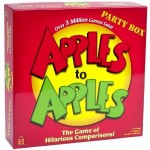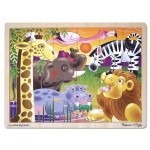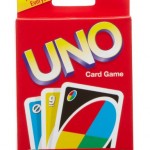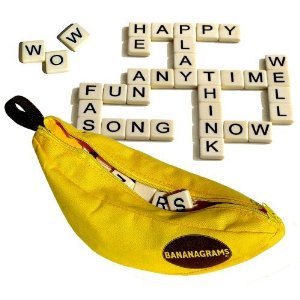
During the holidays, isn’t it fun to play games with family and friends? Remember games you used to play as a kid? Maybe it was Scrabble or Uno or Chess. It’s all about being together and enjoying a good laugh or a challenge. So this holiday season, break out the games!
As LearningRx ‘brain lady’ Dr. Suzanne Miltich says, many games aren’t just fun — they can sharpen your cognitive skills and make your minds more fit. Don’t let the turkey make your brain slow down this Christmas. Have fun and learn at the same time!
Dr. Miltich shared a list with us to help parents shop for toys, games, and brain activities that will improve children’s learning skills. (See bottom of page for a partial list of cognitive skills and descriptions. )
She also shared some info from nationally known brain training experts Dr. Ken Gibson and Tanya Mitchell. She said it’s their hope that “…parents will shop wisely for toys this year, purchasing toys that can help develop the cognitive skills that make learning possible—like attention, memory, processing speed, logic and reasoning, and auditory and visual processing. Research now shows that learning skills can be trained—and therefore improved. Brain skills training does for the brain what physical exercise does for the body.”
“ A parent whose child has Attention Deficit Disorder, for example, will want to shop for toys that improve attention,” explains Mitchell. “Likewise, a child who struggles with reading will benefit from games that practice sound blending and segmenting.”
Gibson is the founder of the national brain training franchise LearningRx and, along with Mitchell, co-author of ‘Unlock the Einstein Inside: Applying New Brain Science to Wake Up the Smart in Your Child.’
On to the list of brain-sharpening toys:
 Apples to Apples: Different versions of this game are available, and prices range up to $20.
Apples to Apples: Different versions of this game are available, and prices range up to $20.
Skills strengthened: Executive Processing, Inductive Reasoning, Logic & Reasoning, Planning, Problem Solving.
Chess: Classic wooden chess sets sell for less than $15.
Skills strengthened: Divided Attention, Executive Processing, Logic & Reasoning, Planning, Problem Solving, Sequential Processing.
Legos: LEGO Ultimate Building Set (405 pieces) is less than $25.
Skills strengthened: Deductive Reasoning, Executive Processing, Planning, Problem Solving, Sequential Processing.
 Puzzles: Prices vary with size and number of pieces. Choose puzzles that are interesting and a challenge but not so difficult to become discouraged and give up.
Puzzles: Prices vary with size and number of pieces. Choose puzzles that are interesting and a challenge but not so difficult to become discouraged and give up.
Skills strengthened: Deductive & Inductive Reasoning, Planning, Problem Solving, Visual Processing, Short Term Memory, Working Memory.
Scrabble: Scrabble Board $12; Banagrams $14.
Skills strengthened: Deductive & Inductive Reasoning, Problem Solving, Visual Processing, Short Term & LongTerm Memory. Simultaneous Processing, Word Attack.
Sequence: Sequence Original $19; Jax Sequence States and Capitals $18.
Skills strengthened: Logic & Reasoning, Planning, Problem Solving, Visual Processing, Working Memory.
Slap Jack: Slap Jack card game $3.
Skills strengthened: Logic & Reasoning, Numerical Concept & Fluency, Planning, Visual Processing, Short Term Memory, Selective Attention, Sequential Processing.
Stare! Second editions range from $22 for Stare! Junior to $28 for Stare!
Skills strengthened: Visual Processing, Long Term & Short Term Memory, Working Memory.
 Uno: Prices range from $6.20 for the original card game to $40 for UNO attack! with most other versions selling for as little as $13.
Uno: Prices range from $6.20 for the original card game to $40 for UNO attack! with most other versions selling for as little as $13.
Skills strengthened: Logic & Reasoning, Numerical Concept & Fluency, Visual Processing, Short Term Memory, Sustained Attention, Working Memory.
Say What? $27-28
Skills strengthened: Auditory Processing, Divided Attention, Logic & Reasoning, Processing Speed, Problem Solving, Selective Attention, Sequential Processing, Short Term Memory, Working Memory, Sustained Attention.
COGNITIVE SKILLS: What are they and why do we need them? (A partial list)
Auditory Processing: To process sounds. Helps us hear the difference, order, and number of sounds in words; basic skill needed to learn to read and spell.
Auditory Blending: To blend individual sounds to form words.
Auditory Segmenting: To break apart a word into its separate sounds.
Inductive Reasoning: To make generalized conclusions from particular instances.
Logic & Reasoning: To reason, plan, and think.
Long Term Memory: To store information and fluently retrieve it later in the process of thinking.
Problem Solving: To organize information, define the goal of inquiry, plan a series of sequential steps, and apply the steps accurately to satisfy the goal of inquiry.
Processing Speed: The speed at which the brain processes information. Makes reading faster and less tiring, one more aware of their surrounding environment, helps with sports and activities such as driving.
Selective Attention: To stay on task even when distraction is present.
Visual Processing: Ability to accurately create, maintain, and analyze a visual representation or picture mentally. Helps to read maps and understand and ‘see’ math word problems, improves ability to accurately perform mental math and computations, improves reading and comprehension skills.
Working Memory: To retain information while processing it.
If your child is struggling in school, there are two local LearningRx locations (see links below). Ask “the brain lady” about an assessment to help pinpoint your child’s difficult areas. Learning Rx is a nwaMotherlode sponsor.

